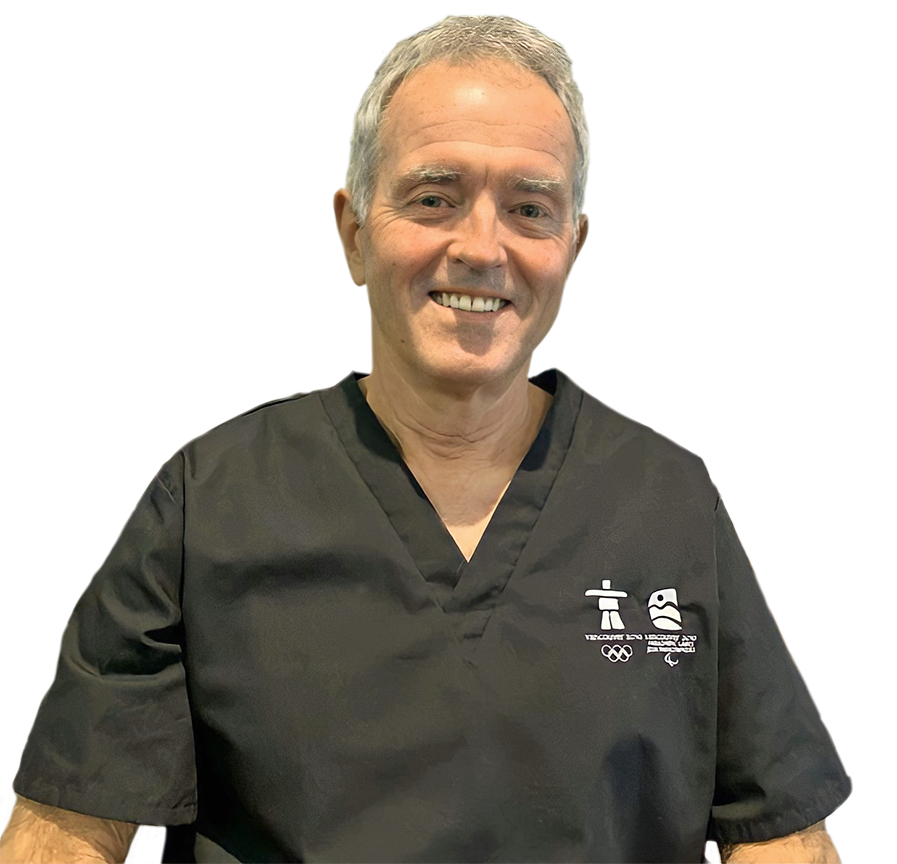If you’re anything like Dr. Bruce Ward, you’ve spent more time in the company of your dental colleagues and staff than you have with most members of your own family. So, as he says, “You gotta get along and take care of each other.”
A lot has changed since Dr. Ward started practising dentistry nearly half a century ago. But one thing remains true—dentists need to help each other succeed and be there to support each other. As chair of the dental mentorship program offered through the British Columbia Dental Association, he has seen the positive impact of peer-to-peer support and encourages everyone to talk openly about the challenges they face as professionals and leaders.
Practice management in the new school of dentistry
 Dr. Ward sees mentorship and peer support as critical success factors for new dentists. In particular, he feels young and new-to-practice dentists would benefit from open discussions about the business of running a dental practice.
Dr. Ward sees mentorship and peer support as critical success factors for new dentists. In particular, he feels young and new-to-practice dentists would benefit from open discussions about the business of running a dental practice.
Dentistry has never been more challenging, both mentally and financially. Competition can be fierce, it can feel like you’re working harder and earning less, and building a high-performing practice team is just plain hard. (Okay, the last one has always been true, so take really good care of good staff).
“It’s not always possible to provide students with all the skills they will need to run a business while they’re in dental school,” he says. “That’s a time in life when there’s more incentive to learn how to be a dentist, not a business owner.”
Skills for a new, competitive world
If you want to create a treatment plan that takes your practice forward in the face of today’s economic challenges, Dr. Ward suggests you start by asking for a little help from your friends. “We’re seeing the stigma of mental health starting to decline as more dentists embrace self-care and realize that the mental and emotional parts of being a dentist are just as important as physical health. But there’s always room for improvement.”
There’s a lot of pressure on dentists to get everything right, every day. “That pressure isn’t just applied to the dentist in charge,” says Dr. Ward. “Stress can weigh on the entire practice. And that’s why it’s so important to talk about mental and emotional wellness.”
Here are four effective strategies for reducing stress in the workplace, while creating a mentally and physically healthier environment.
1. Build a network (in person and online)
Not many people outside the business of dentistry can appreciate the pressures you face every day. Few professions demand as much mental agility as dentistry and that’s why you need to nurture your relationships with everyone in your practice as well as other dentists in your community. Whether it’s in person or online, what matters most is that you have a support network of people who know what it's like to work under pressure every day.
2. Open the door to peer-to-peer support
Not only is dentistry a highly specialized profession, it can also feel lonely when you’re dealing with pressures that seem unique to you. “This sense of isolation can become magnified for dentists working in remote locations who may not have close relationships with other dentists,” Dr. Ward says. He recommends seizing every opportunity to network with peers either through attending conferences or through community groups on social media.
3. Open up to family and friends
Good advice can come from anyone. Sometimes it helps to talk to someone who isn’t a dentist but faces similar kinds of stress in another career. Friends and family can provide guidance and may be able to offer tips based on their experience. Either way, it’s good to find someone you trust who will listen without judgment.
4. Making health and fitness part of the plan
It’s common knowledge that dentistry takes a toll on the body and that can lead to emotional stress. Planning can increase the odds that you’ll be able to incorporate more physical and mental health habits into your workday. For practical tips on how to reduce work strain, download the booklet from Ontario Health Clinics for Ontario Workers on Working Posture, Techniques and Exercises designed for dental professionals.
Asking for help has always been the right thing to do. To help you stay physically and mentally healthy, reach out to friends and colleagues, and take some time to learn about all the resources available through your provincial and territorial dental associations, and through CDSPI.
With the backing of Canada's dental associations, CDSPI’s contributions to dentistry in Canada go beyond financial services. CDSPI sponsors the Members’ Assistance Program (MAP)* and makes this valuable support service available, at no cost, to dentists, dental students, staff and their families. If you haven’t tried MAP yet, check out all the helpful resources by logging into one.telushealth.com. Your username is the abbreviation of your provincial/territorial dental association and the password is CDSPI. There is access to short-term counselling and support for your physical, emotional and mental wellness. It can even help you find childcare or eldercare in your area.
You have access to all the great things CDSPI does as a benefit of your membership with your provincial dental association.
*MAP is sponsored by CDSPI and provided by TELUS Health.